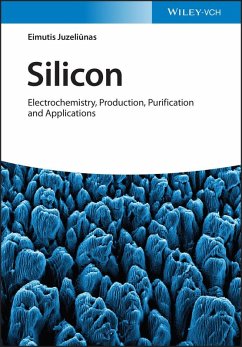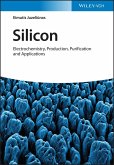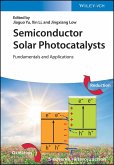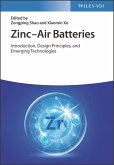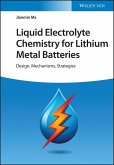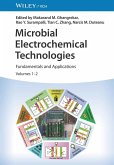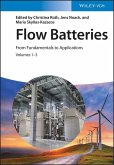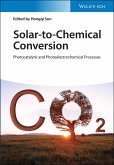Silicon
The expert reference on sustainable and energy-efficient production of photovoltaic-grade silicon materials
Electrochemical methods, in particular molten-salt approaches, are a cost-effective, energy-efficient, and highly sustainable approach for producing solar-grade silicon. Surface micro- and nanostructuring methods for effective light harvesting, silicon electrorefining in molten salts, electrodeposition of photoresponsive films, and other related processes are likely to replace conventional carbothermic production methods.
Silicon: Electrochemistry, Production, Purification and Applications presents an up-to-date summary of recent experimental and technological developments in the field, highlighting sustainable and energy-efficient processes for high-grade silicon production for a variety of photovoltaic and energy applications. Presented in a logical and concise format, this authoritative volume details the fundamental properties and technical processes of metal-grade silicon production and describes the various electrochemical methods for high-grade silicon production. Topics include silicon surface modification, chemical-physical structuring, porous and black silicon, electrochemical Si surface structuring and anodizing in molten salts, and more.
Written by a leading researcher in the field, Silicon: Electrochemistry, Production, Purification and Applications is a valuable resource for chemists and material scientists in academia and industry, particularly those working in sustainable energy development, photovoltaics, light harvesting efficiency, solar-to-chemical conversion, and production of solar-grade silicon, batteries, photoelectrodes, or silicon-based semiconductors.
The expert reference on sustainable and energy-efficient production of photovoltaic-grade silicon materials
Electrochemical methods, in particular molten-salt approaches, are a cost-effective, energy-efficient, and highly sustainable approach for producing solar-grade silicon. Surface micro- and nanostructuring methods for effective light harvesting, silicon electrorefining in molten salts, electrodeposition of photoresponsive films, and other related processes are likely to replace conventional carbothermic production methods.
Silicon: Electrochemistry, Production, Purification and Applications presents an up-to-date summary of recent experimental and technological developments in the field, highlighting sustainable and energy-efficient processes for high-grade silicon production for a variety of photovoltaic and energy applications. Presented in a logical and concise format, this authoritative volume details the fundamental properties and technical processes of metal-grade silicon production and describes the various electrochemical methods for high-grade silicon production. Topics include silicon surface modification, chemical-physical structuring, porous and black silicon, electrochemical Si surface structuring and anodizing in molten salts, and more.
- Reviews the sustainable and energy-efficient production and purification of photovoltaic-grade silicon materials
- Summarizes recent progress in sustainable processes for high-grade silicon production
- Describes electrochemical methods for silicon production such as electrolysis, electrodeposition, and electrorefining
- Concludes with a discussion of future challenges and opportunities
Written by a leading researcher in the field, Silicon: Electrochemistry, Production, Purification and Applications is a valuable resource for chemists and material scientists in academia and industry, particularly those working in sustainable energy development, photovoltaics, light harvesting efficiency, solar-to-chemical conversion, and production of solar-grade silicon, batteries, photoelectrodes, or silicon-based semiconductors.
Dieser Download kann aus rechtlichen Gründen nur mit Rechnungsadresse in D ausgeliefert werden.

